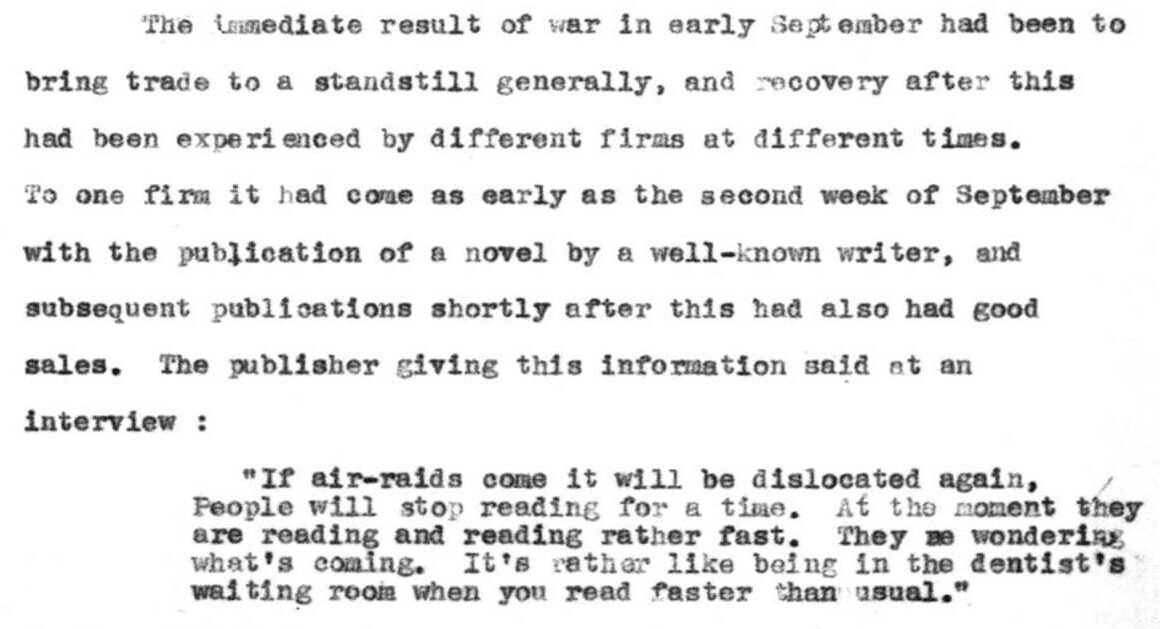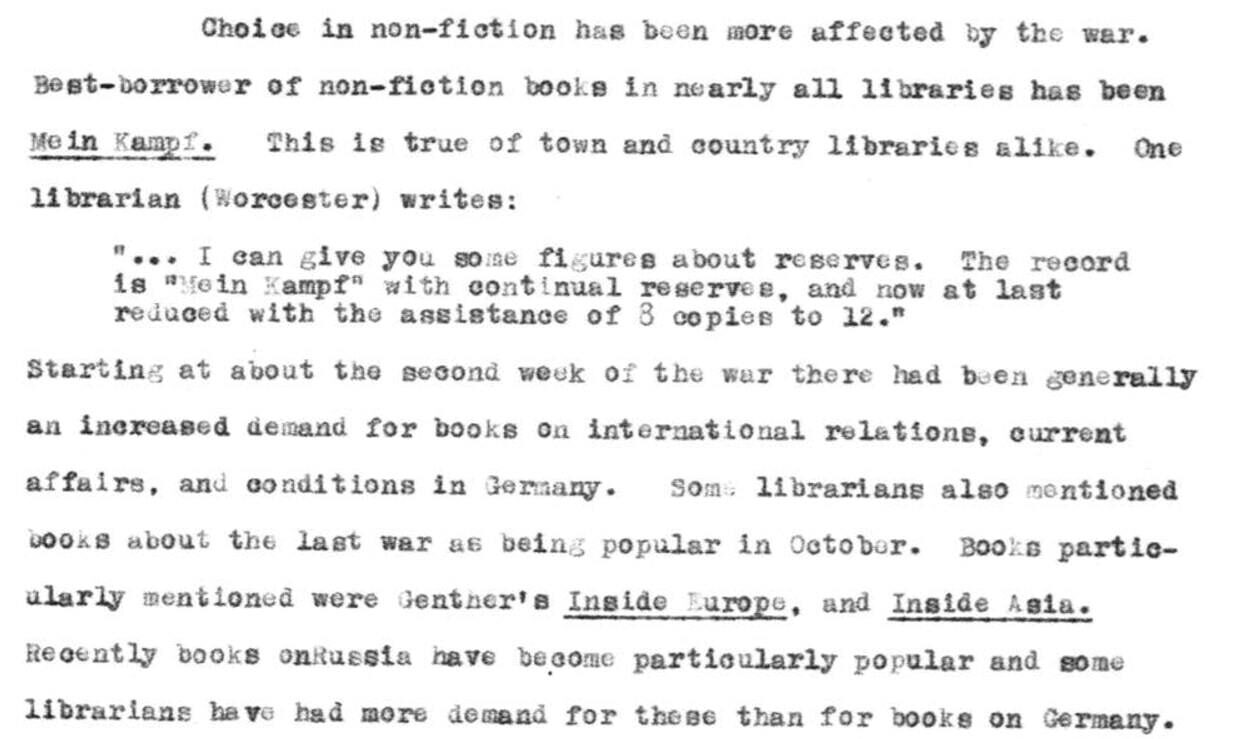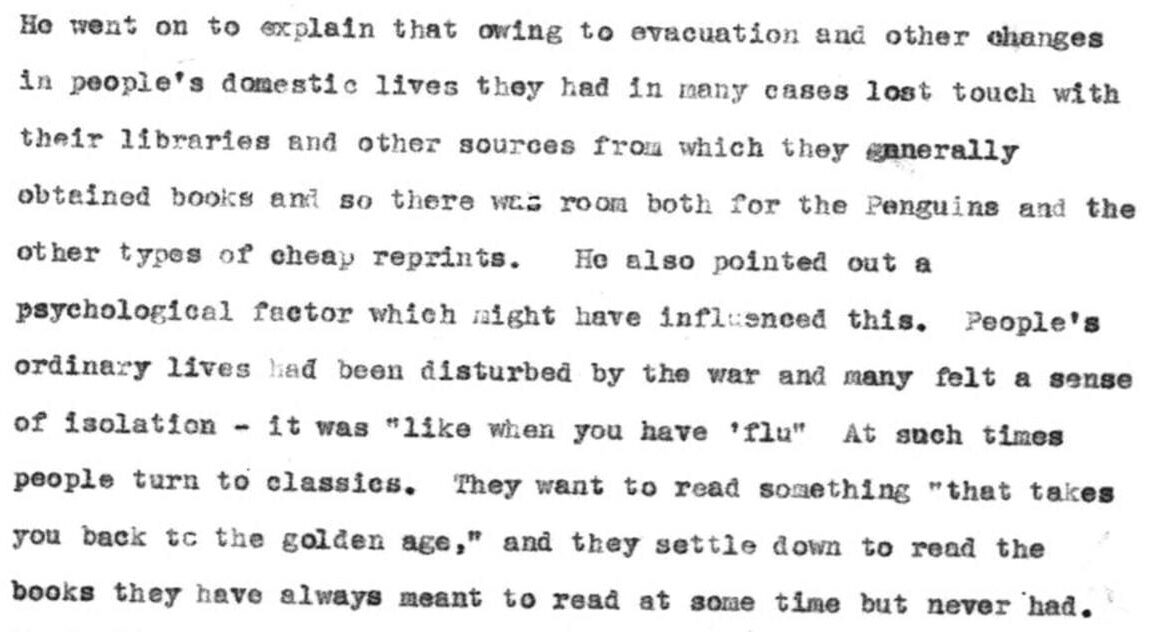Early Reading Trends of the Second World War: An Industry Perspective
Mass Observation Online reveals how eighty years ago our reading and book buying habits shifted. Book Reading in War Time: Report on Material Obtained from Publishers, Book Clubs, Libraries and Booksellers offers insights into the impact the first few months of the Second World War had on the book publishing industry, our libraries, and the books we were scrambling to read.

Book Reading in War Time, March 1940, © Mass Observation Archive. University of Sussex Special Collections. No further reproduction without permission. To see this document in the collection, click the images in the blog.
The report avoids drawing any specific conclusions about the impact of the war on the publishing industry because the responses were so varied. Despite this, there were a number of shared observations and pressures felt by many of the respondents, such as the impact paper rationing will have on future printing and how nationwide blackouts have encouraged people to read more.

Book Reading in War Time, March 1940, © Mass Observation Archive. University of Sussex Special Collections. No further reproduction without permission. To see this document in the collection, click the images in the blog.
The report suggests there was an increased demand in non-fiction book buying and lending during this period. Librarians noted the popularity of Hitler’s Mein Kampf and other books about Germany, as demonstrated by the increase in reservation requests. It is perhaps unsurprising that the British public would turn to these non-fiction books to sate their desire to understand more about Germany’s current affairs and motivations.

Book Reading in War Time, March 1940, © Mass Observation Archive. University of Sussex Special Collections. No further reproduction without permission. To see this document in the collection, click the images in the blog.
The report suggests there was an increased demand in non-fiction book buying and lending during this period. Librarians noted the popularity of Hitler’s Mein Kampf and other books about Germany, as demonstrated by the increase in reservation requests. It is perhaps unsurprising that the British public would turn to these non-fiction books to sate their desire to understand more about Germany’s current affairs and motivations.

Book Reading in War Time, March 1940, © Mass Observation Archive. University of Sussex Special Collections. No further reproduction without permission. To see this document in the collection, click the images in the blog.
To find out more about Mass Observation Online (1937-1967) or the recently published Mass Observation Project (1981-2009), including free trial access and price enquires, please email us at info@amdigital.co.uk
Recent posts

The blog highlights American Committee on Africa, module II's rich documentation of anti-apartheid activism, focusing on the National Peace Accord, global solidarity, and student-led divestment campaigns. It explores the pivotal role of universities, protests, and public education in pressuring institutions to divest from apartheid, shaping global attitudes toward social justice and reform.

This blog examines how primary sources can be used to trace the impact of young voices on society, particularly during pivotal voting reforms in the UK and the US. Explore materials that reveal insights into youth activism, intergenerational gaps, and societal perceptions, highlighting their interdisciplinary value for studying youth culture, activism, and girlhood across history.
